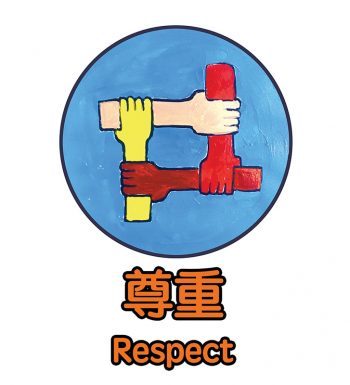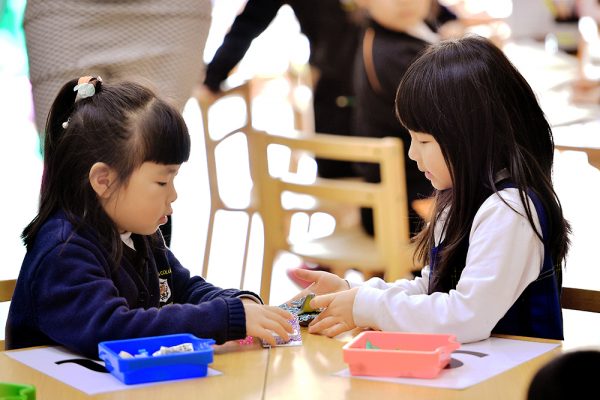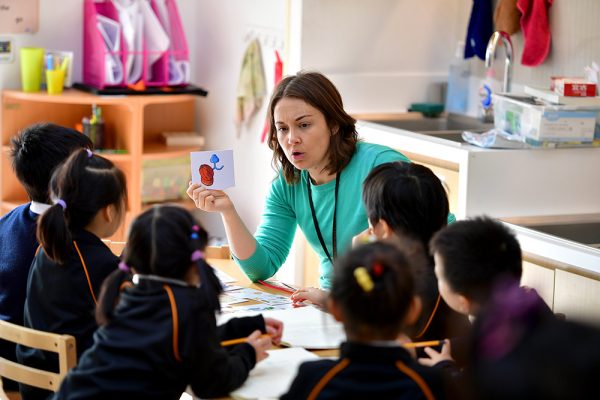
This month our Wellington College Bilingual Nursery community is joining hands to better understand how we can live each day with respect. Like all the Wellington values, respect is one of the principles we use to guide how we interact with others, how we behave, and how we educate the children in our care.

Respect is a very broad value, and sometimes hard to explain to young children. In the simplest terms, respect is about how you feel about someone and how you treat them. Respect is sometimes misunderstood to be about power or control. Many assume that it is something that can be commanded or expected because of age, authority, or status. At Wellington, we begin from the belief that everyone is a valuable and equal member of our community and should be treated as such. Everyone, be they a child, a family member, or member of staff has something unique and valuable to contribute. It follows then that everyone is deserving of respect for their own abilities, qualities or achievements and are valued in our community for who they are.

In the setting we work hard to respect and value the work and opinions of others. Our academic staff work in teams, across cultures and languages, creating a curriculum that brings together the very best of Chinese and British education for the children in our care. This respect for one another and our ideas is how we build the bespoke curriculum we offer each day, and helps create a learning environment for children that is holistic, pupil-centred, fun and progressive.
Respect for ourselves guides our morals. Respect for others guides our manners. - Laurence Sterne
Children learn to show respect for others by observing our behaviour as adults. At Wellington College Bilingual Shanghai respect is promoted through our use of language: greetings, good manners, and giving thanks to those who help us. A cheerful “Good morning!” or “How are you today?” says much more than the words themselves. These simple, polite words bring respect to life. They help others know that you see them, you acknowledge them, and you are happy to have them as part of your community. We strongly advise that parents and families make an effort to use respectful language in front of their children and ask extended family members or helpers to do the same. It is far more meaningful and teaches children more about how to treat others with respect than chiding and endless verbal reminders.
Respect your efforts, respect yourself. Self-respect leads to self-discipline. When you have both firmly under your belt, that’s real power. - Clint Eastwood
Learning to respect yourself is also a critical part of childhood. Children who learn to care for themselves, advocate for what they feel is right, and protect themselves from harm when they are in the early years and these skills support healthy habits, positive relationships, and overall wellbeing throughout life. Like all skills, learning to respect yourself requires adults who lead by example, support children to explore their own choices, ideas, thoughts and feelings, and most importantly, the opportunity to practice! Giving children the opportunity to make good decisions in everyday life will help develop their confidence in their ability to do so when they face more difficult decisions about their behaviour or learning in the classroom. One way to build resilience and self- respect is to ask questions in a way that gives children real choices. For example “Do you want spinach or carrots for dinner?” or “Would you like green underpants or yellow underpants today?” are questions that allow children to make choices that are meaningful to them but do not set up conflict with a parent or cause problems for the child. Asking a child yes-no questions with only one answer, e.g. “Do you want to eat vegetables for dinner?” or questions that set them up for conflict or failure, e.g. “What do you want to wear today?” asked of a child who wears a uniform each day, discourages children as their choice cannot be respected. Children who feel comfortable and confident that their choices will be respected become more active and confident learners as well. Children also need support and positive role models to learn how to respect physical property and the environment. This often a challenging idea for children growing up in affluence. Everything seems so easily available or replaceable. Yet learning to treat shared materials, spaces, or others’ belongings as your own is an important part of getting along well with others and showing respect for them. The area of respect is closely related to next month’s wellbeing theme, responsibility. Young children need support to learn to care for things that are shared or belong to others.